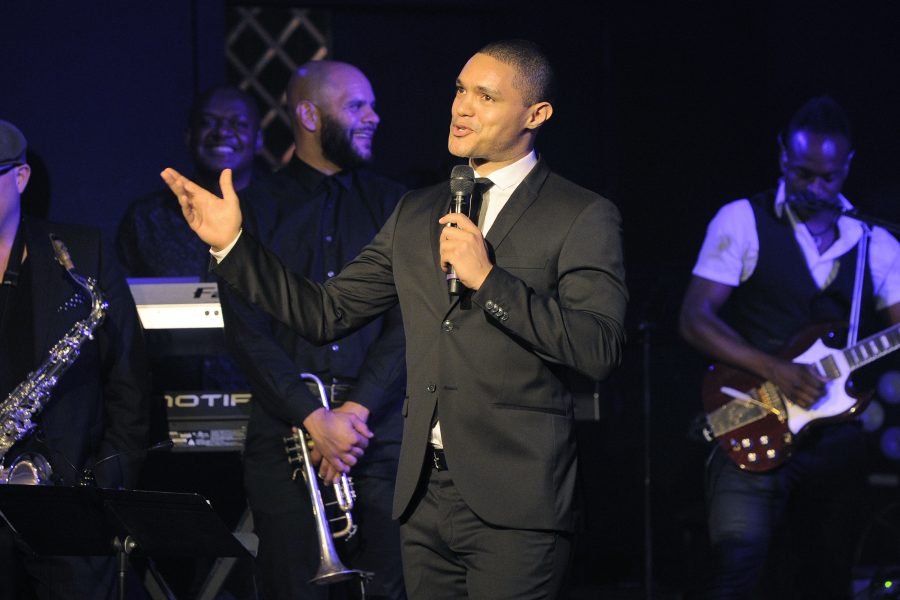The famous saxophone solo at the end of Bruce Springsteen’s “Born to Run” played out Jon Stewart’s last episode of “The Daily Show” a few weeks ago, as ‘The Boss’ paid tribute to a comedian whose presence on television will be sorely missed. David Letterman, who left the helm of “The Late Show,” which he brought to CBS 22 years ago, preceded Stewart’s retirement this year.
Stewart and Letterman were icons of late night TV. For a time, both men acted as the comedic outlet for the nation: Letterman during his heyday in the Clinton years, and Stewart during the past decade. They each leave behind such a legacy that pressure on the newcomers replacing them is extremely high.
The new versions of each of their shows will premiere this fall, and there’s a lot of worry about whether “The Daily Show with Trevor Noah” and “The Late Show with Stephen Colbert” will live up to the comedic genius of their predecessors. But, this fretting ignores the potential that both series have to be great. Change is a part of television, and the only way for new talent to come forward is for the old guard to step back.
When Stephen Colbert announced that he would be leaving “The Colbert Report” and taking over Letterman’s show, there was a buzz of excitement, but there’s an aspect of the transition that is worrying people. On “The Colbert Report,” the comedian played a character, a parody of conservative pundits like Bill O’Reilly, yet Colbert won’t carry this persona over to his new show, meaning that people will now be meeting the “real” Stephen Colbert for the first time. The comic is launching himself as a public figure just as he takes over a television series watched by millions.
Will Colbert still be funny when he’s not acting like a Republican blowhard? I believe so. During his tenure on Comedy Central, the comic was able to hone his skills at the three aspects of late night hosting: monologues, sketches and interviews.
Even if he wasn’t acting “as himself,” these are strengths he will be able to bring on to the new show. Plus, many sketches and bits on “The Colbert Report” weren’t explicitly political but were still great without requiring the host to act as a conservative caricature. The next iteration of “The Late Show” will be the first time America meets the “new” Stephen Colbert, but I think if his time on Comedy Central proves anything, it’s that the host is up to basically any challenge.
However, I hope that Colbert brings his eye for political humor into his new series. I like Jimmy Fallon well enough, but his tendency to stay away from having opinions that might alienate his viewers politically makes his brand of comedy quite mild. Much in the way that Letterman was always the caustic foil to jolly old Leno, I hope that Colbert distinguishes himself by maintaining the biting satire that made “The Colbert Report” so great.
On the other hand, Trevor Noah’s takeover of “The Daily Show” is high-pressure simply because he’s grabbing the reins of one of the most important vehicles of political comedy ever. The South African stand-up faces a big challenge in succeeding the beloved Jon Stewart, but I believe that his iteration in the series has the potential to grow into at least as important a platform as its predecessor.
Noah has a specific new idea to incorporate into “The Daily Show” format. In addition to mocking cable news, the favorite target of Stewart, Noah has stated he also hopes to lampoon lazy or partisan journalism on the Internet, as well as clickbait articles. These two topics could be a well of new sources of humor, and I think this change might invigorate the show.
The new “Daily Show” host also represents an important trend in television as a whole: that of increased diversity. The late night talk show genre, in particular, is replete with white men, and having a new face that can offer a different perspective on current events is certainly a good thing. The fact that the host was born overseas also gives him a unique view of American politics, society and race relations.
Want another source of hope for the incoming class of late night hosts? The upcoming 2016 election, a rich vein of comedic material, is coming up for the taking. After all, it’s not hard to make Donald Trump funny.
Because of this, I am looking forward to the new generation of late night television. Sure, it’s true that Jon Stewart and David Letterman are leaving big shoes to fill, but I think these new people could be just the right fit.









